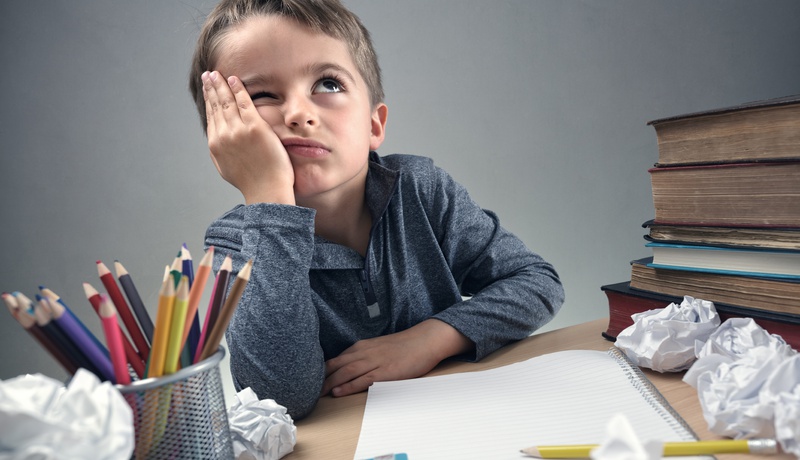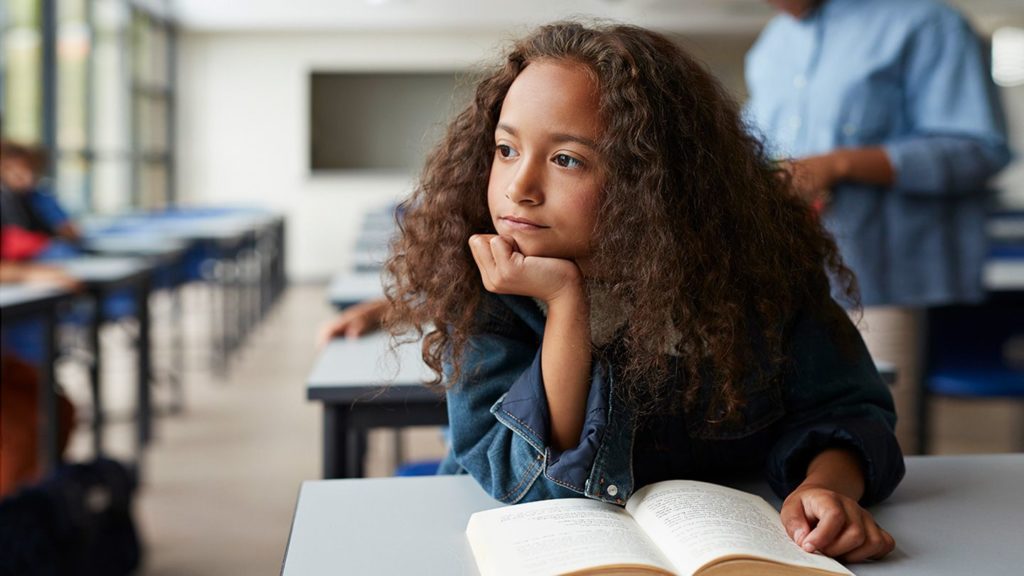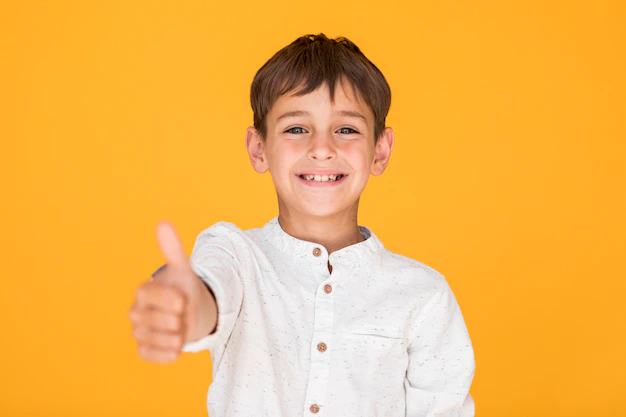
1. ADD/ADHD kids have a harder time paying attention in school
I was assisting a family with three boys with varying issues with behavior and attention. Jimmy was the youngest and had a diagnosis of ADHD. I was working with him with his training exercises to help improve his focus when his mother made an interesting comment. She said that she had been told by the school that Jimmy was not paying attention in class because he was not trying, but because his brain was working differently.
This is a common misconception about kids with ADHD. It is not that they are not trying, but that their brains are working differently and struggle to focus in a traditional school setting. This is where brain training can be so helpful. It can help strengthen the parts of the brain that are responsible for focus and attention, making it easier for kids with ADHD to stay on task. It also supplements the reward center in the brain, providing an extra incentive to stay on task. This is important since there is a correlation between ADHD and low dopamine.
2. They are more likely to struggle with academics and standardized tests
The public school system is largely catered to the neurotypical brain. This can pose a challenge for kids with ADHD who struggle to keep up in a traditional school setting. They may fall behind in academics and be less likely to do well on standardized tests. Brain training can help bridge this gap by helping kids with ADHD improve their focus, attention, and memory. This will allow them to keep up with their classmates and potentially even excel in school.
Parents who are aware of the advantages of investing time upfront in establishing these training standards can assist their children avoid feelings of frustration and low self-esteem. In addition, a child’s academic career is not limited by an ADHD diagnosis if he or she has the proper training and guidance to use their strengths to their advantage.
3. ADD/ADHD can lead to behavioral problems, such as impulsiveness and defiance
As a child grows older and is unable to adequately control his or her impulses, this can lead to problems in school and at home. These behavioral issues can often be mistaken for a lack of discipline or bad attitude. However, they are actually often symptoms of ADHD.
Brain training with neurofeedback can help kids with ADHD learn how to better control their impulses. This will not only make them more pleasant to be around, but it will also help them stay out of trouble at school and at home. In addition, it can help reduce feelings of defiance and frustration, making interactions with authority figures less contentious.

4. Kids with ADD/ADHD are more prone to anxiety and depression
Unfortunately, kids with ADHD are more prone to developing anxiety and depression. This is often due to the challenges they face throughout their lives. They may feel like they are constantly struggling and that they can’t keep up with their peers.
Neurofeedback can be helpful in reducing feelings of anxiety and depression. It can help kids with ADHD learn how to better control their emotions, making them less prone to feeling overwhelmed. In addition, it can help improve self-esteem, which is often low in kids with ADHD. This will allow them to feel more confident and capable, which will help reduce feelings of anxiety and depression.
5. They often have trouble making friends and fitting in
Kids with ADHD often have trouble falling and staying asleep. This is usually due to the stimulation they experience during the day. Their brains are constantly active, and they have a hard time shutting down at night.
Neurofeedback can help kids with ADHD learn how to relax and fall asleep more easily. It can help calm the brain down and eliminate excess stimulation whilst balancing the circadian rhythm. In addition, it can help improve sleep quality, which will allow kids to feel more rested and energized during the day.
6. ADD/ADHD can make it difficult to focus on hobbies or activities they enjoy
As a child I recall being in love with Lincoln Logs so much that my hyper focus on building the best and biggest log cabin ever got me in trouble in school. I would not focus on learning anything new and only cared about building things. This made me seem odd to the kids as I spent much of my time in second grade in the corner with the box of Lincoln Logs.
Many kids with ADD/ADHD have trouble making friends and fitting in. This is often due to their inability to focus on socializing in the same way that other kids can. They may be more prone to daydreaming or getting lost in their own thoughts.
Kids with ADHD learn how to focus more on social interactions after a few sessions of neurofeedback. It can help them pay more attention to what is going on around them and keep up with the conversation. In addition, it can help them learn how to read social cues, which can be difficult for kids with ADHD. This will allow them to form better relationships with their peers.
7. Kids with ADHD are more likely to have accidents
A study published in the journal Pediatrics found that kids with ADHD are more likely to have accidents and injuries than those without the disorder. The study looked at data from over 9,000 children and found that those with ADHD were twice as likely to have an accident that required medical attention.
This is often due to the impulsive nature of kids with ADHD. They may not think before they act, which can lead to dangerous situations. Neurofeedback can help kids with ADHD learn how to better control their impulses, making them less likely to get into accidents. In addition, it can help improve focus and attention, which will also help reduce the likelihood of accidents.
8. ADD/ADHD can make it difficult to focus on hobbies or activities they enjoy
While there is a component that may make a child with ADHD super focused on thing they enjoy, it is usually short lived. Most of the time, their focus is all over the place and they have a hard time completing tasks or hobbies.
Kids with ADHD often find it difficult to focus on activities that they enjoy. This is usually due to their inability to stay focused for an extended period of time. Neurofeedback can help kids with ADHD learn how to better focus and pay attention, which will allow them to be creative and enjoy their hobbies and activities more. In addition, it can help improve concentration, which is often difficult for kids with ADHD.

In conclusion, kids with ADHD benefit greatly from neurofeedback to help them focus and control their impulses. Neurofeedback can also help improve sleep quality, which will allow them to be more rested during the day. Lastly, neurofeedback can help kids with ADHD form better relationships with their peers. The benefit of using neurofeedback is there are no negative side effects and it is a non-invasive treatment. It’s a relaxing experience for the child and can be tailored to their needs. Neurofeedback is a great way to help parents reduces stress and kids with ADHD reach their full potential.
We offer the most affordable Neurofeedback training plans available. Connect with us today and/or schedule an appointment.
